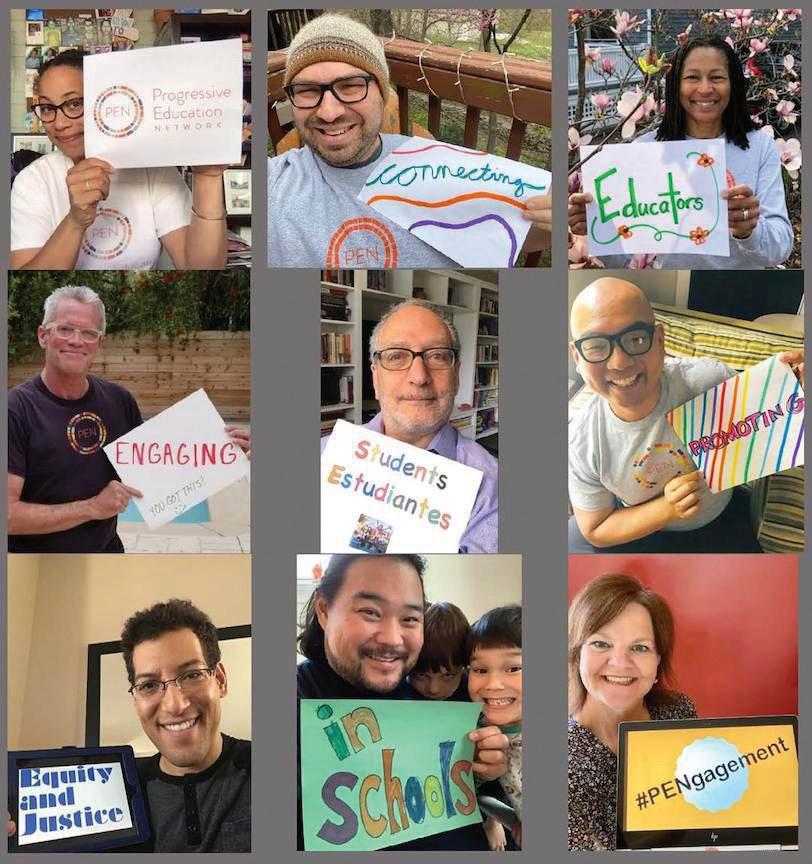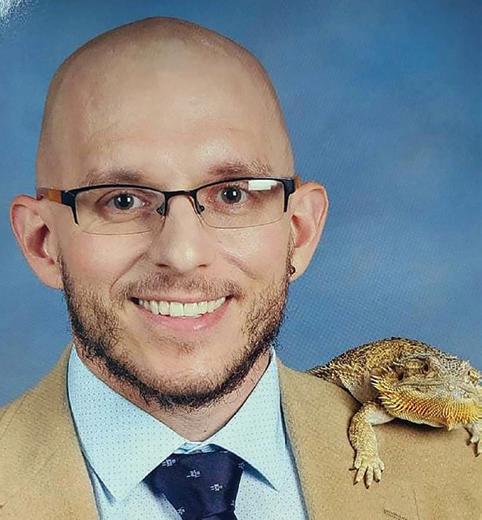
4 minute read
Paul Gorski
PEN 2019 CONFERENCE: Paul Gorski - Be a Threat to Injustice Everywhere
— by Sunny Pai, Board Member
Last October, at our National Conference in Minneapolis, Paul Gorski (founder of EdChange edchange.org and the Equity Literacy Institute equityliteracy.org) called on all of us to be a threat to injustice. He named the many ways in which we “dance around” doing equity work - by holding diversity celebrations or by engaging in initiatives such as mindfulness or restorative justice that help marginalized students cope with being marginalized, rather than rooting out the systems that keep them marginalized in our schools. He spoke in direct language:
Identify the injustice, eliminate the injustice. That’s equity work.
If we are to challenge inequity in our schools, Dr. Gorski gave us four critical abilities to work on:
Ability to RECOGNIZE even the subtlest biases and inequities Ability to RESPOND to biases and inequities in the immediate term Ability to REDRESS biases and inequities in the long term Ability to CREATE AND SUSTAIN bias-free and equitable classrooms, schools, and institutional cultures
As I listened to Dr Gorski outline these four critical abilities, I thought about my own journey, and the enormous work it takes to increase my ability to recognize subtle (and overt) biases and inequities. As an Asian person who is privileged in almost every way other than race (gender, socioeconomic status, sexual orientation, etc), I am miles further down the road on this journey than I was ten years ago, but there is still much ground to cover. We can always learn more about the experience of people who are marginalized in ways that we are not. Training ourselves in this recognition is a lifetime of work. White educators must learn to recognize subtle racism. Cis-gender people must learn to recognize transphobia. Men must learn to recognize subtle sexism. This is important work.
Recognizing inequity alone will not create justice.
We must learn not only to respond powerfully and effectively in the moment - Dr. Gorski noted that in addition to the knowledge and skill to respond, we must ensure we have the will to respond - but also to redress biases and inequities in the long term. By this, he meant we must deeply inspect our institutional biases and constructs that caused us to have inequity to begin with. He said, “When you change an inequitable policy, don’t just change the policy but also ask the question: What is it about institutional culture that got us to this place where we have these inequitable policies and practices?” This is redressing biases and inequities in the long term, in our schools and in our lives. Recognizing inequity alone will not create justice.
Dr. Gorski shared that in all his extensive school visits, he asks marginalized groups of students when they experience injustice. Consistently and unfailingly, their response is, “every day, multiple times a day.” The only way to address this heartbreaking response is to deeply examine our systems and root out the inequities existing in our institutional culture that continue to allow these transgressions to live on.
This is not a time to be carefully deliberate in our work. Dr. Gorski said:
If you’re taking baby steps around equity and justice, what that means is that you’re prioritizing the safety and comfort of the people with the least amount of interest in equity and justice over the people with the most desperation that we make some progress around equity and justice… so enough with the baby steps. We cannot have this conversation about racism in a way that is structured to take care of the feelings of White people.
The truth is, if you’re doing racial justice right, there are going to be White people who feel like they no longer belong in your organization - and that is a gift to your organization.
In most schools, it is actually harder to be an outspoken anti-racist, than it is to be a racist. That is a failure of leadership. If that’s true in your school, if the people who are the most outspoken about racial justice issues feel more marginalized in your institution than the people who are dragging their heels around equity and justice stuff, that is a failure of leadership. The people dragging their heels, they should literally feel marginalized. “Maybe I don’t belong here.” They should feel like that. Unfortunately, what happens too often, is the people who are most outspoken about these issues start to feel like, “you know, I’m not sure I can survive here.” When we get to a point where the racists, or the homophobes, or the transphobes, or the ableists, whoever say, “I don’t know if I can survive in this institution,” that’s when we know we are making some progress.
We don’t get to justice through peace and harmony. We don’t get to justice through prayers and positive feelings. We get to peace and harmony through justice. If peace and harmony are leading and justice is taking a back seat to that, you got it backwards. Having the expectation that people who are experiencing being marginalized in our institution - that they’re gonna want peace and harmony - that is an oppressive belief to begin with.
As he said, every one of our schools may be doing good work, but every one of our schools also has marginalized students who are feeling ways in which our schools are inequitable every day. Let us be energized by Dr. Gorski’s work and be hungry to gain the four abilities for equity literacy. Let us not wait until students share these experiences with us, but be proactive in gaining the knowledge, skills, and will to create schools where equity is a top priority.











